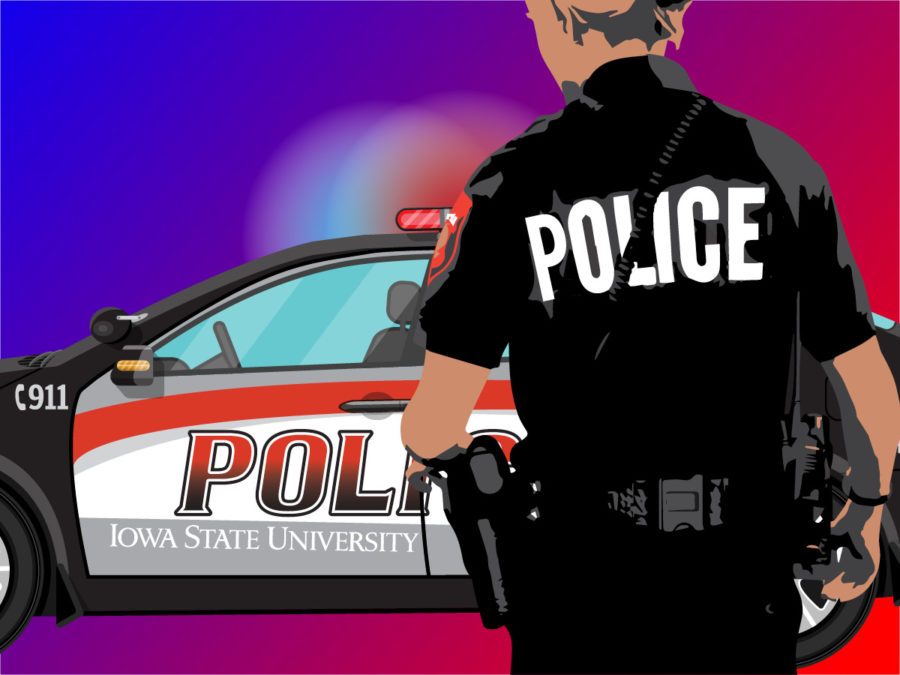What would happen if a school shooting occurred at Iowa State?
October 4, 2017
Editor’s note: This story was originally published on Oct. 5, 2017, after the mass shooting in Las Vegas. It has been updated to include the most recent school shooting in Parkland, Florida.
Wednesday’s school shooting at Marjorie Stoneman Douglas High School in Parkland, Florida, has left the country with a host of unanswered questions.
Why did Nikolas Cruz, a 19-year-old, decide to shoot and kill innocent students? What, if anything, will change to help prevent the next school shooting?
Perhaps more specifically, what happens if there’s a school shooting at Iowa State?
While only time, and many more hours of investigation, will provide answers for the first two, the Iowa State Police Department has plans and programs in place to help keep students safe in the event of a violent incident here on campus. Here is what to expect:
What the police would do
In the event of a mass shooting or high causality incident, the police’s first priority is to stop the violence.
“When we get a report of something like this we’re immediately sending a full law enforcement response to the area. Our first objective is to stop the threat,” ISU Police Chief Michael Newton said. “If somebody is still actively shooting, our officers are immediately going to try and engage that incident and stop any more killing or injuring that’s happening.”
Dispatch would be swamped with calls, relaying relevant information to officers and working to get emergency notifications to campus.
General patrol officers would be the first on the scene, Newton said. While Story County does have a tactical team made up of officers from various departments in the county, including officers from Iowa State, it may take some time to mobilize. Oftentimes, these kind of incidents end before law enforcement can even arrive.
As word spreads of the shooting, resources from other nearby agencies and the Iowa State Patrol would begin to pour into Ames.
“If we were to call out that there’s a mass shooting situation or some kind of mass killing situation, we’re going to see a lot of resources start to head our way,” Newton said. “We would ask mutual aid from everybody in the county.”
Only after the threat is eliminated will police be able to treat the wounded, something that may confuse onlookers.
“There may be people injured and down and the officers aren’t stopping to care for them,” Newton said. “They need to take care of the situation. That’s confusing, sometimes, for people. But our first priority is to stop anything else from happening.”
Once the threat is gone and the injured are cared for, a long and complex series of local, state and federal investigations will begin.
The Senior Leadership Team at the Emergency Operations Center would look at the long term consequences, deciding when classes would start again, if any rooms or buildings will remain closed and what the vigil would look like.
Police would also look at what lessons could be learned from the incident. Currently, ISUPD is waiting to synthesize any material from the shooting in Las Vegas to help them better prepare.
“Unfortunately, there’s so many incidents, there’s a lot of lessons that we can take from those,” Newton said.
What you should do
The best way to stay safe during a mass shooting is to think about what you’re going to do before one ever happens, Newton said.
ISU Police offers a Violent Incident Response Training (VIRT) aimed at better preparing students for the possibility of a violence incident on campus. Students and organizations can schedule a training with ISUPD and watch a brief video overview of the program online.
“Thinking through this and getting training ahead of time is probably the key to your survival potentially in these situations,” Newton said.
VIRT is broken down into three elements — avoid, deny and defend — however, the in-the-moment response will often boil down to personal preference.
“First you should take care of yourself,” Newton said. “Get out of the situation, seek shelter. One of the things that we find is people tend to come to the incident when they learn about it. Stay away if you’re not in the area.”
The first thing you should do when you hear gun fire is call the police, according to the training. Even if lines are busy, keep trying until you can get through. Any information could help law enforcement.
If you can, avoid the situation. Get to safety as fast as possible and find nearby objects to use as cover.
If leaving isn’t an option, deny the shooter access by locking and barricading any doors. Shooters will often take the path of least resistance, Newton says, something as simple as keeping quiet and out of the way could go a long way for your safety.
The final, and most risky, option is defend. If you can’t leave or deny the shooter access, try to distract them by yelling or throwing objects. Swarm and subdue the shooter if you can.
“You have to think about all three of those strategies ahead of time,” Newton said. “In the heat of the moment I don’t know if you’re going to do that. That’s why in law enforcement we rehearse things and we do training.”
Since the shooting in Las Vegas is fresh in the minds of many, Newton expects to see a spike in people hoping to receive VIRT training. In order to consolidate police resources and provide as many people with training as possible, police are encouraging those interested to sign up with larger groups.
VIRT is a free program offered at the request of a department or group on campus. Those who wish to schedule a training or find more information should contact Lt. Elliott Florer at (515) 294-4428 or Officer Anthony Greiter at (515) 294-3009.







